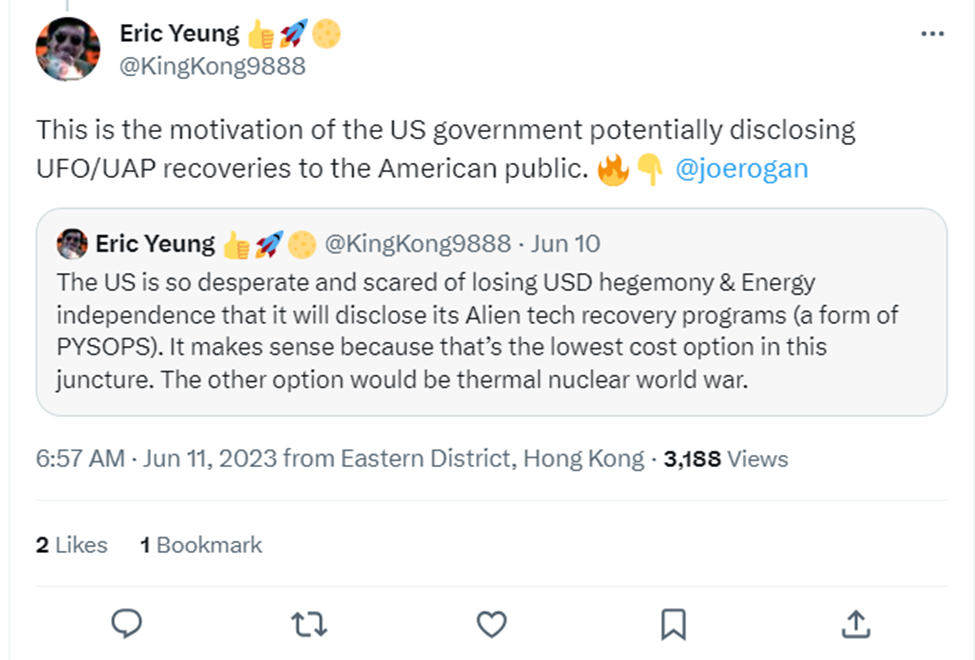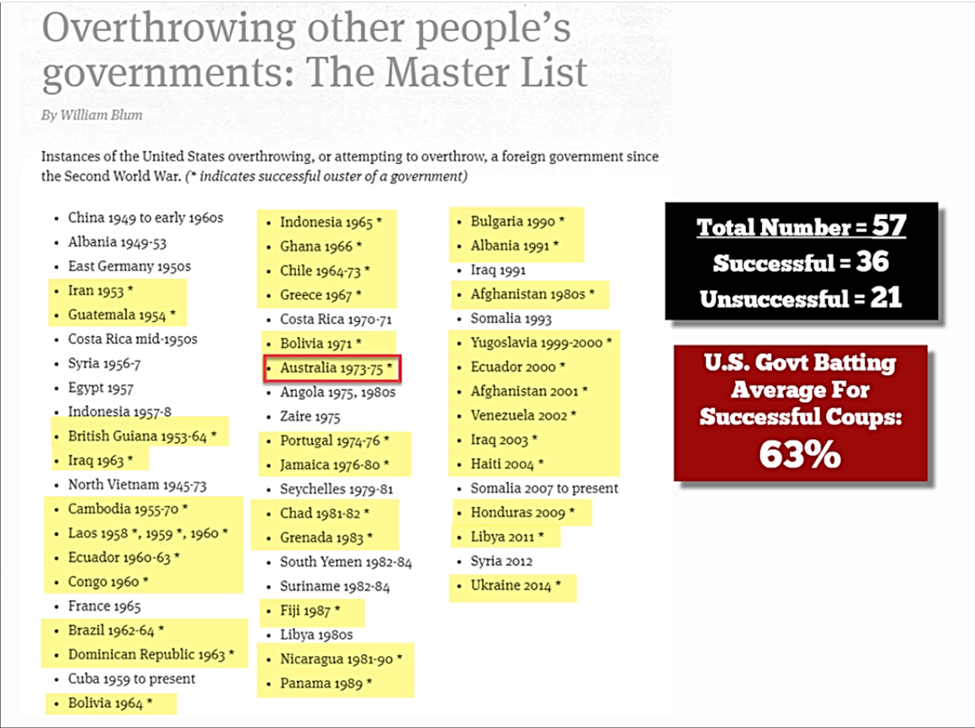by Jon Forrest Little, Gold Seek:

For those new to the blog, thank you for your kind emails. I’m just one guy swinging a Pickaxe around, meaning no harm. I do want to come out of the gate announcing the prevailing theme of this blog which are these bullet points:
- Central bankers work with their client governments to consolidate power.
- They do so by debasing the currency.
- Setting up corrupt power institutions whereby the insiders (say Congress) or those standing closest to money printers reap the benefits through…
- Insider trading, after classified intelligence briefings, members of Congress trade defense industry, Energy, and tech stocks. This is Wall Street Socialism, where winning is privatized and losing is socialized. It’s rigged.
- These power elites are military, political, and corporate leaders that often use war to control populations, redraw maps, redistribute resources, rig foreign trade, steal oil, gold, and raw materials, exploit labor and funnel money to the ruling class.
TRUTH LIVES on at https://sgtreport.tv/
I’m not going to use this blog post as a way to prove all my points, but you will start seeing the intensifying of what I’m calling the 3 Fs
– Fires
– Food Shortages
– Flying Objects
Just get ready for story after story on these subjects
The fires will feed into the false narrative that the internal combustion engine is bad, but allowing kids to mine cobalt for Teslas is ok.
- The food shortages will be amplified by mergers and acquisitions by billionaires to consolidate farmland in the hands of an elite few. What greater power is there than to control our food supply?
- The flying objects will be the US claiming a distinct advantage over Russia and China.
Eric Yeung (a business analyst and geopolitical expert) writes, “The US is so desperate and scared of losing US Dollar hegemony & Energy independence that it will disclose its Alien tech recovery programs (a form of PSYOPS). It makes sense because that’s the lowest-cost option at this juncture. The other option would be a thermal nuclear world war.”

The three Fs (Food, Fires, Flying Objects) are examples of moving from crisis to crisis.
Just like everything on this list below.

data by the late great William Blum and scoreboard graphic by my good friend Steve St. Angelo
Let’s Look at how going crisis to crisis works to consolidate power.
It’s an ancient playbook.
I. We will start in 2008
II. Then go to the time Kings and Feudalism (and during the era of Middle Ages and Colonialism)
III. Then go to Ancient Times (BARD helped with this ancient history segment.)
I. 2008
Rahm Emanuel, who served as White House Chief of Staff under President Barack Obama, used the phrase “Never let a good crisis go to waste” to argue that the 2008 financial crisis created an opportunity for the Obama administration to enact significant reforms.
Here are some examples of how the phrase “never let a good crisis go to waste” has been used in different contexts:
- In business: A company might use a crisis, such as a recession, to lay off employees or reduce costs. However, the company could also use the crisis as an opportunity to invest in new technology or to expand into new markets.
- In politics: A politician might use a crisis, such as a natural disaster, to gain sympathy from the public or to pass new laws. However, the politician could also use the crisis as an opportunity to consolidate power or to advance their own agenda.
- In social movements: A social movement might use a crisis, such as a war or a natural disaster, to gain attention for their cause or to recruit new members. However, the social movement could also use the crisis as an opportunity to enact lasting change.
II. Kings in the Middle Ages, Feudalism and during era of colonialism.
Kings in the Middle Ages, during feudalism, and during colonialism invented crises to consolidate power:
- During the Middle Ages: In the Middle Ages, kings often used the threat of invasion from foreign powers to justify their increasing power. For example, in the 11th century, William the Conqueror invaded England and claimed the throne. He then used the threat of invasion from France to justify his rule and to increase his power.
- During feudalism: In the feudal system, lords granted land to vassals in exchange for military service. This system gave lords a great deal of power over their vassals. However, vassals could sometimes become too powerful, and this could lead to a crisis. In order to prevent this, kings would sometimes invent crises, such as the threat of invasion, to justify their intervention in the feudal system.
- During colonialism: During colonialism, European powers often used the threat of violence from native populations to justify their rule. For example, in the 19th century, the British Empire invaded India and claimed the territory. The British then used the threat of violence from native populations to justify their rule and to increase their power.
In all of these cases, kings used crises to consolidate their power by creating a sense of urgency or by exaggerating the threat posed by a particular problem. By doing this, they could often gain the support of the people and the military for their own political agendas.
Here are some additional details about each of these examples:
- William the Conqueror: William the Conqueror was the Duke of Normandy in France. In 1066, he invaded England and defeated the English king, Harold Godwinson, at the Battle of Hastings. William then claimed the English throne and became King William I. He used the threat of invasion from France to justify his rule and to increase his power. For example, he built a series of castles along the English coast to protect England from invasion. He also imposed taxes on the English people to pay for his military campaigns.
- The feudal system: The feudal system was a system of land ownership and military service that developed in Europe during the Middle Ages. Under the feudal system, lords granted land to vassals in exchange for military service. This system gave lords a great deal of power over their vassals. However, vassals could sometimes become too powerful, and this could lead to a crisis. In order to prevent this, kings would sometimes invent crises, such as the threat of invasion, to justify their intervention in the feudal system. For example, in the 12th century, King Henry II of England intervened in the feudal system by issuing the Assize of Arms. This law required all freemen to own and use weapons in order to defend the kingdom from invasion.
- Colonialism: Colonialism was a system of political, economic, and cultural domination by one country over another. During colonialism, European powers often used the threat of violence from native populations to justify their rule. For example, in the 19th century, the British Empire invaded India and claimed the territory. The British then used the threat of violence from native populations to justify their rule and to increase their power. For example, in the 1857 Indian Rebellion, the British Empire suppressed a rebellion by Indian soldiers. The British then used this rebellion as a pretext to increase their control over India.
III. Crisis Management in Ancient Times.
There are many examples of emperors in ancient history who invented crises in order to consolidate their power or advance their own agendas. One of the most famous examples is Julius Caesar, who in 44 BC staged a fake assassination attempt on himself in order to gain sympathy from the Roman people and justify his subsequent seizure of power.
Another example is the Roman emperor Diocletian, who in 284 AD divided the Roman Empire into two halves in order to deal with the growing crisis of imperial administration. This division, known as the Tetrarchy, lasted for over 20 years and gave Diocletian and his co-emperors a greater degree of control over their respective halves of the empire.
In China, the emperor Qin Shihuangdi is known for his ruthlessness in consolidating his power. In 213 BC, he ordered the burning of all books and the execution of all scholars in order to prevent the spread of dissent. He also built the Great Wall of China to protect his empire from invaders.














